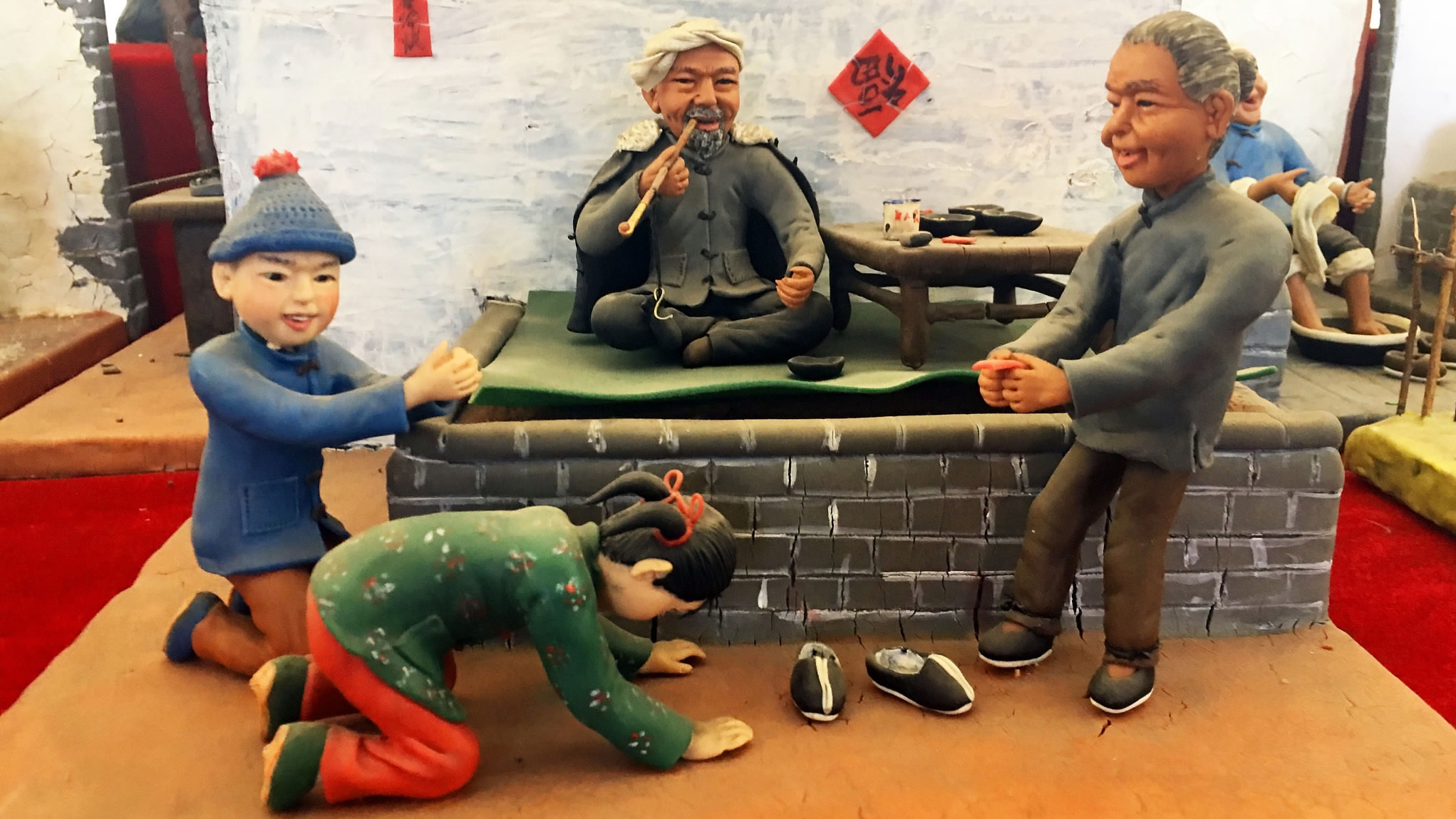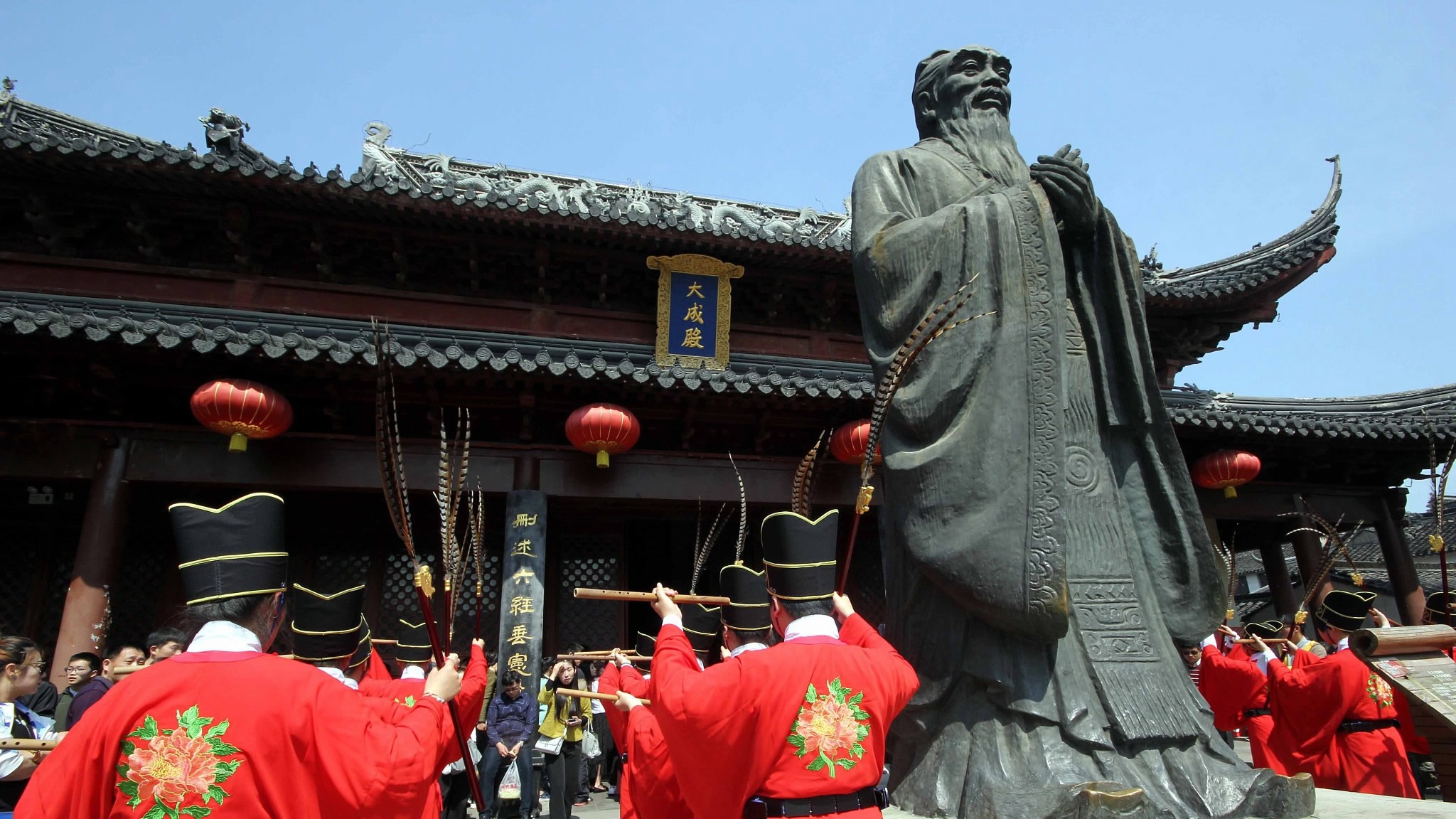
China
19:38, 08-Feb-2018
Tradition or humiliation: Chinese wife’s complaint triggers kowtow debate
CGTN

The Chinese tradition of kowtowing to the elderly during the Spring Festival has been controversial online for the past few days, following a wife's complaint about her husband’s commitment to the ritual.
Kowtow-kneeling and bowing so low as to have one’s head touching the ground-is the highest sign of reverence in Chinese culture yet only observed in some regions of the country nowadays.
Despite this, it is considered to be an act that ruins a person's dignity because it is associated with begging for forgiveness.
As the annual festival is around the corner, a recently married woman said her husband asked her to kowtow to his family, adding it was “dogmatic” and “humiliating” to her.
The husband, born in northern China, thought his wife, who came from the south, was “pampered” and “disrespectful”.

46-year-old Zhang Jinli, who works for a pharmaceutical company in Beijing, virtually prostrate on the station floor at his parents' feet in 2016. /Qilu Evening Post Photo
46-year-old Zhang Jinli, who works for a pharmaceutical company in Beijing, virtually prostrate on the station floor at his parents' feet in 2016. /Qilu Evening Post Photo
The post initially published on Monday to Tianya Club, one of the most popular online forums in the country, has prompted a barrage of debate about the cultural differences on Sina Weibo.
“We only kowtow to the deceased,” commented a user claiming himself came from the south. His post has gained more than 20,000 thumbs-up on the Chinese microblogging platform.
“When I went back to my husband’s hometown to celebrate the Spring Festival for the first time, I was forced to kowtow to every senior,” said another user. “It was embarrassing.”
While some netizens have opposed the custom, others claimed many people in the north don’t have to follow the tradition, saying it was actually a matter of acceptance.
“I was willing to do it since it makes my grandma happy,” stated one of them.
“It is just a way of praying and sending wishes during the festival,” said another netizen.

Confucius was memorized in Nanjing in April 2017. /VCG Photo
Confucius was memorized in Nanjing in April 2017. /VCG Photo
It is not the first time that the kowtow and its place in modern China has been a hot topic on social media.
A 46-year-old man kowtowed to his parents as a sign of filial piety at a railway station in 2016. The act touched many netizens, but others thought it was “too much”.
The concept of filial piety traces back to 400 BC and is a core virtue of the thoughts of Confucius, who was the best-known philosopher in ancient China.

SITEMAP
Copyright © 2018 CGTN. Beijing ICP prepared NO.16065310-3
Copyright © 2018 CGTN. Beijing ICP prepared NO.16065310-3